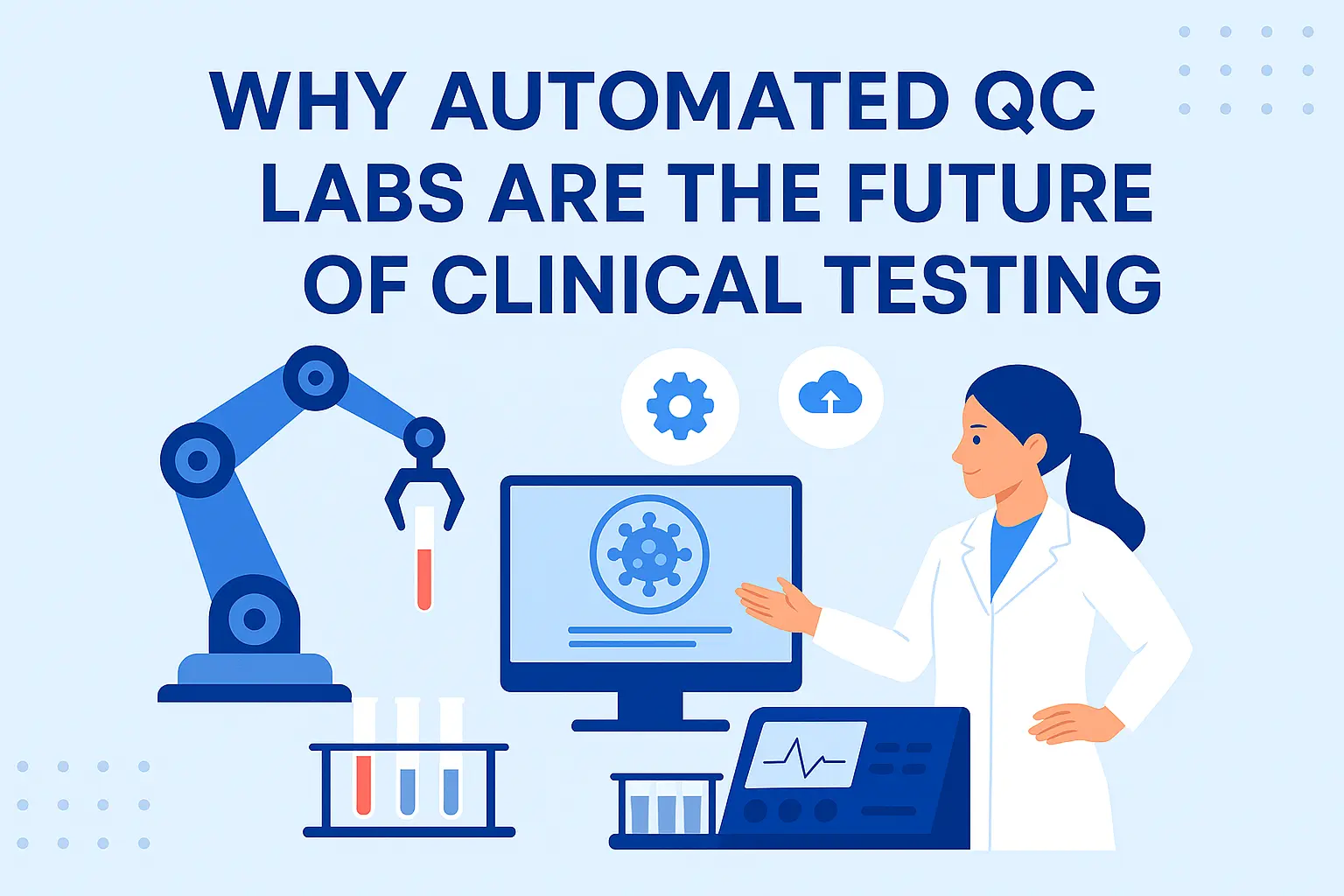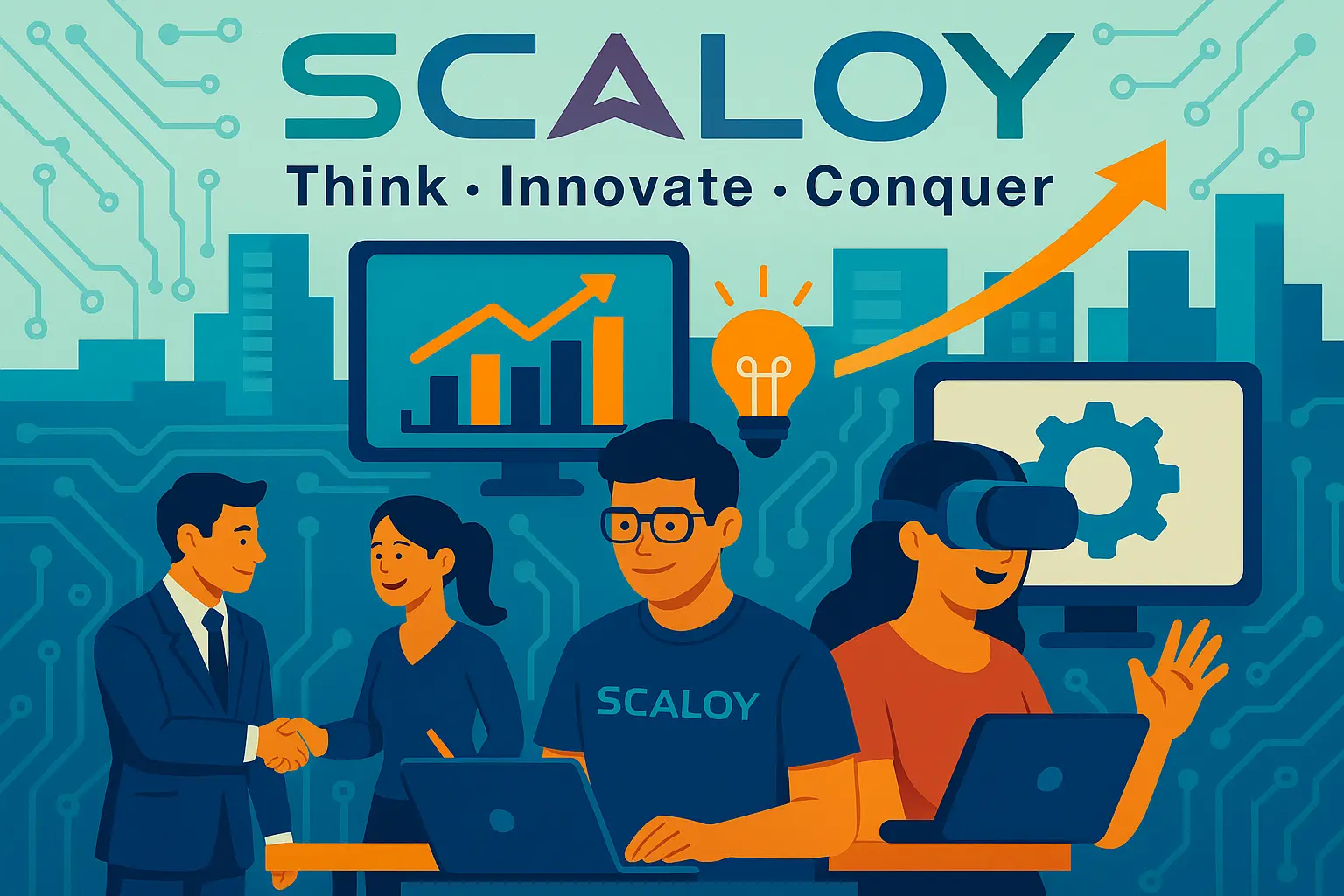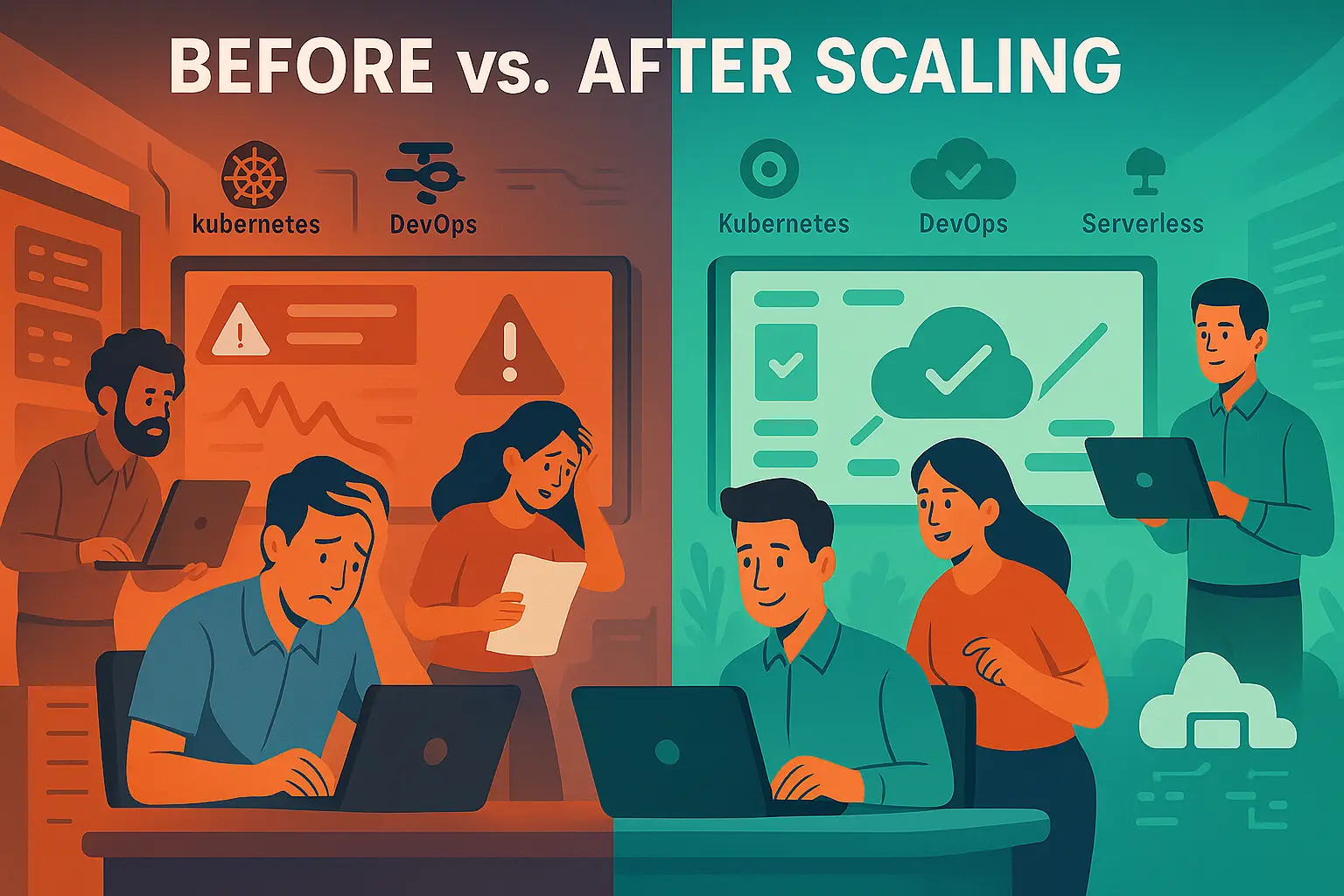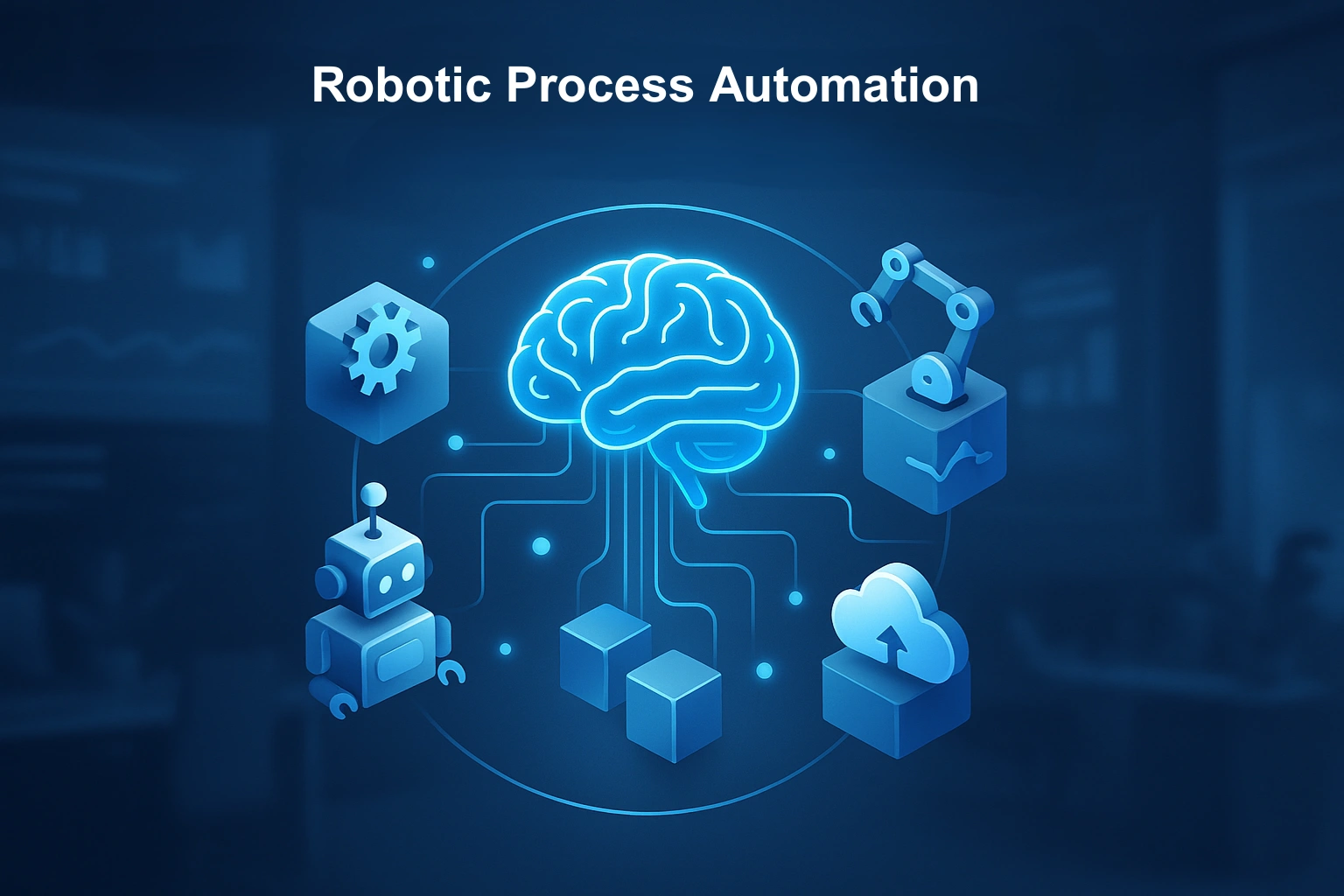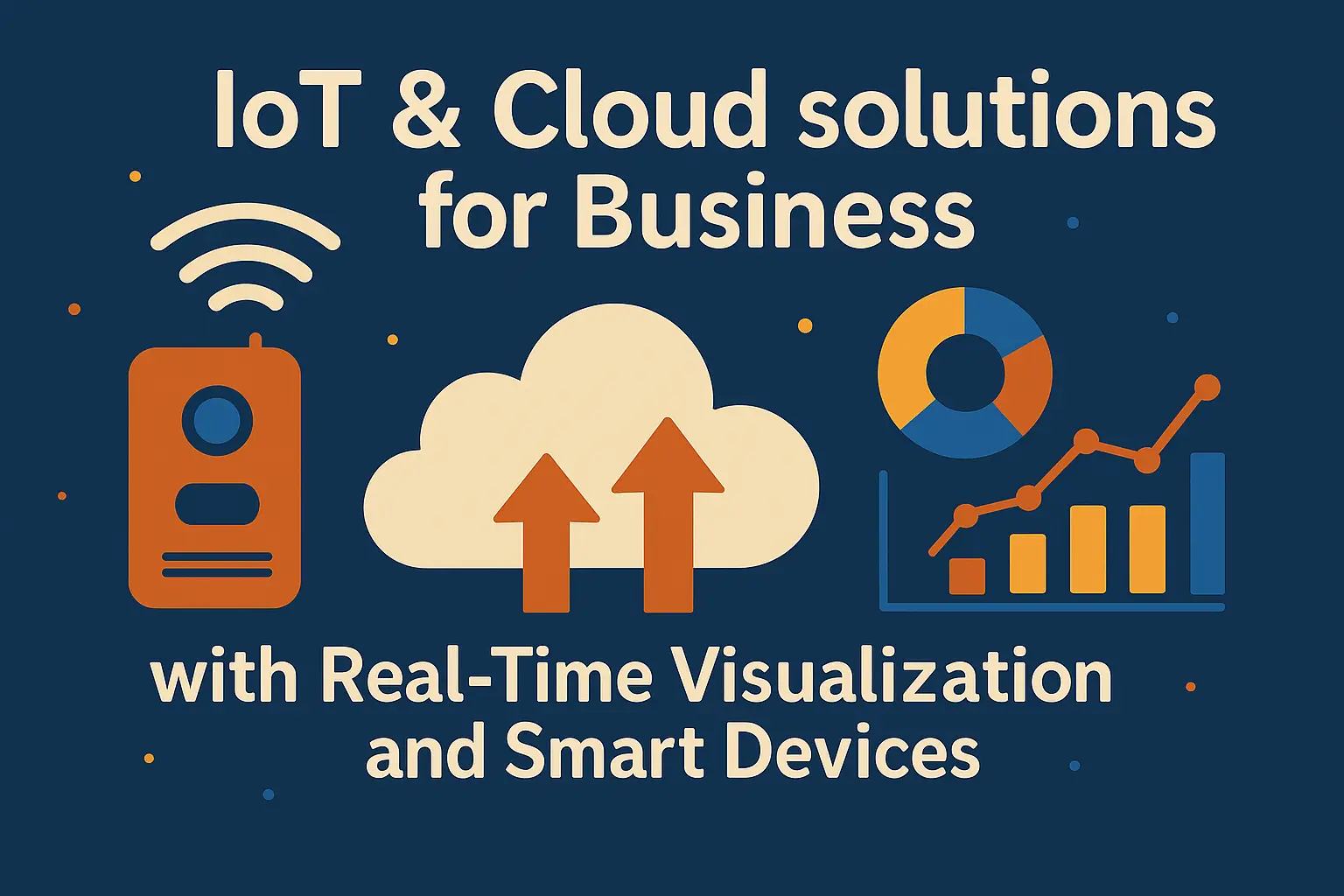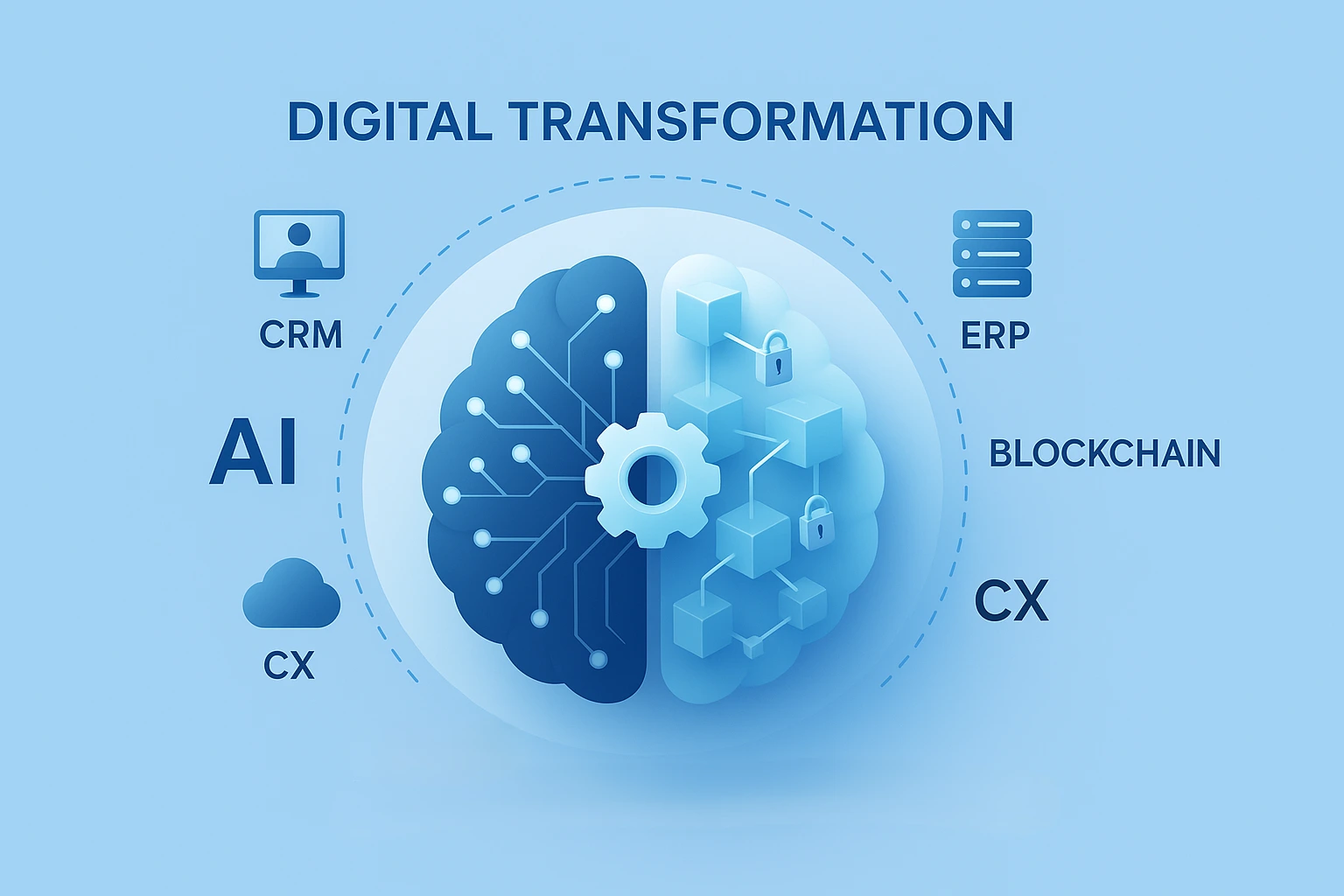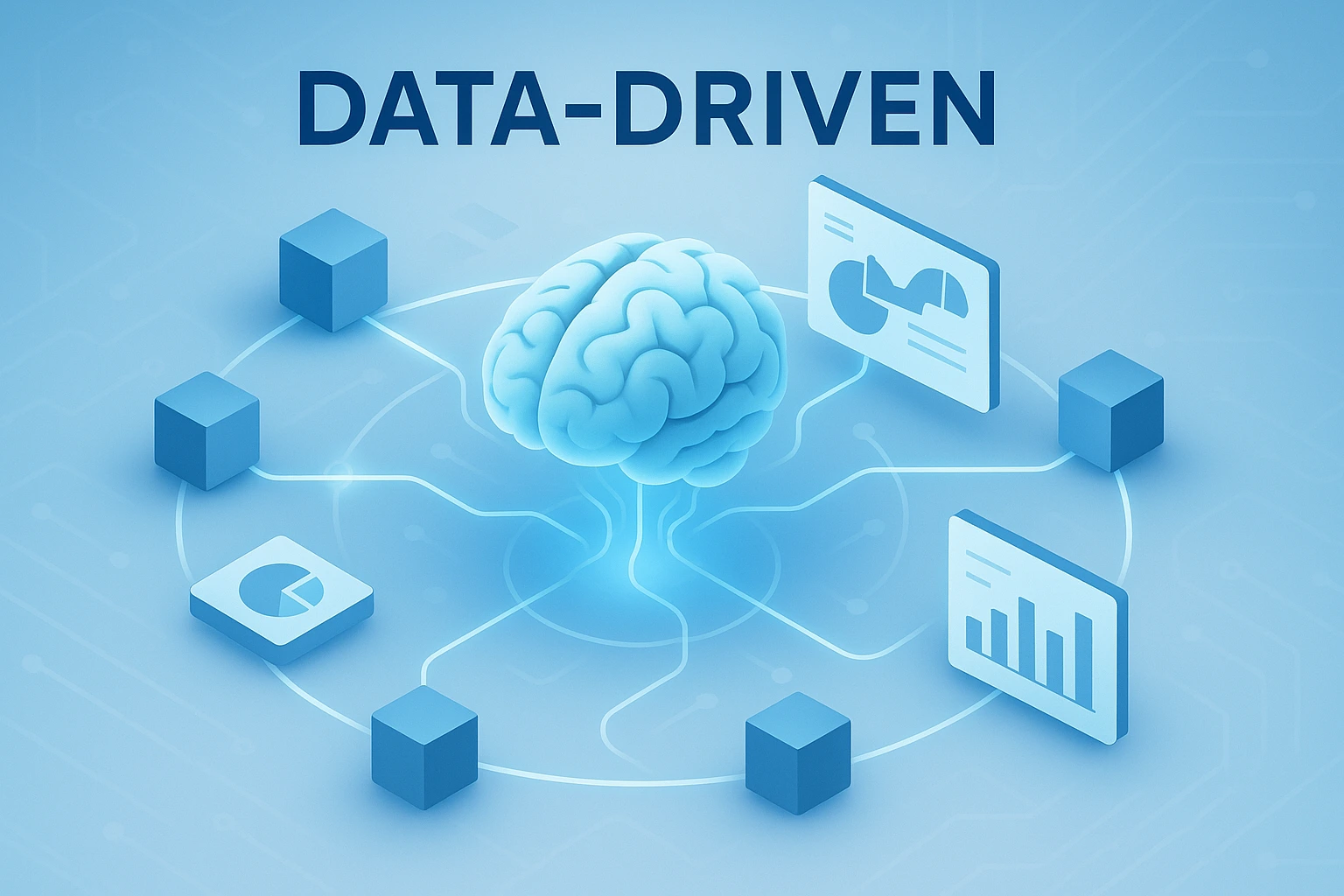Post By

AI Modern Business
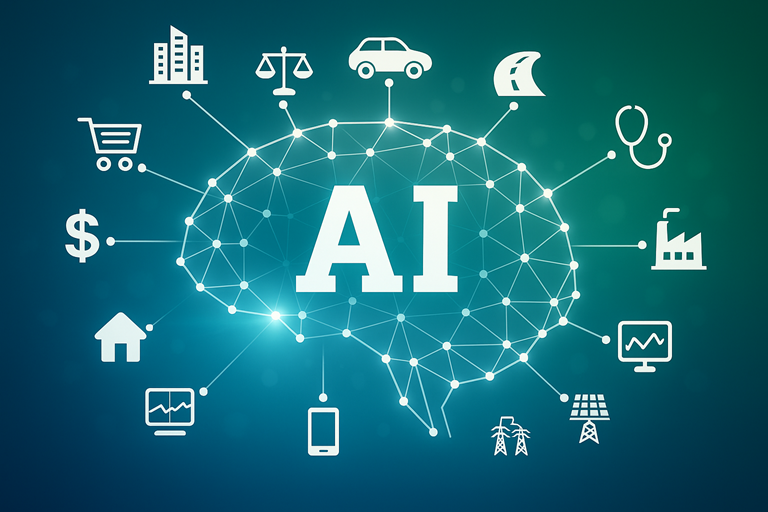
Artificial Intelligence has rapidly evolved from being a buzzword into a cornerstone of modern business success. Companies across every industry are discovering that AI is not just a tool for automation, but a strategic driver for smarter decisions, faster execution, and sustainable growth. From analyzing massive datasets in real time to predicting customer behavior and streamlining operations, AI is enabling businesses to compete in an environment defined by speed and complexity. At Scaloy, we specialize in designing AI solutions that align with business strategy. Our approach ensures AI adoption is seamless, scalable, and value-driven. This blog explores how AI-powered business strategies are reshaping industries, the challenges organizations face, and how Scaloy delivers proven frameworks for smarter decision-making. Today’s business leaders face unprecedented challenges, from managing customer expectations to mitigating risks in a volatile economy. Traditional methods of decision-making often fall short in dealing with such scale and complexity. AI has emerged as the critical enabler that transforms decision-making into a scientific, data-backed process. Organizations using AI are no longer just reacting to changes but predicting them in advance. By embedding intelligence into workflows, companies can build resilience, deliver hyper-personalized services, and continuously adapt to shifting market trends. Adopting AI comes with its own set of challenges: data silos, legacy systems, regulatory complexity, and lack of talent. Scaloy addresses these barriers with targeted solutions across industries: With tailored solutions for each sector, Scaloy ensures that AI adoption is not a one-size-fits-all effort but a customized, measurable strategy. Businesses leveraging AI see benefits that extend across revenue, efficiency, and customer satisfaction. The top advantages include: Successful AI adoption requires both cultural alignment and technical readiness. Scaloy’s expert recommendations include: Scaloy’s AI frameworks have already demonstrated measurable success across industries: These case studies prove that AI not only delivers theoretical potential but also practical, measurable business value. Artificial Intelligence is no longer optional it is foundational for business growth. Companies that embrace AI today will be the leaders of tomorrow, driving innovation, efficiency, and customer loyalty. With Scaloy’s proven expertise, organizations can move confidently from data to decision, ensuring that AI adoption translates into real-world business impact.
The Role of AI in Modern Business
Challenges and Scaloy’s AI-Powered Solutions
Key Benefits of AI-Powered Business Strategies
Best Practices for AI Adoption
Real-World Impact of Scaloy’s AI Solutions
Implementation Process: From Vision to Execution
Conclusion
What is an AI-powered business strategy?
An AI-powered business strategy integrates artificial intelligence into core decision-making and operations to improve efficiency, accuracy, and scalability while enabling predictive and personalized outcomes.
Why is AI critical for business growth in 2025 and beyond?
AI helps businesses stay agile in fast-changing markets by predicting customer needs, improving efficiency, reducing risks, and uncovering growth opportunities faster than traditional methods.
Which industries benefit most from AI strategies?
Industries such as e-commerce, finance, healthcare, logistics, manufacturing, travel, and legal services benefit significantly by leveraging AI for personalization, risk management, automation, and operational efficiency.
What challenges do companies face when adopting AI?
Common challenges include legacy systems, fragmented data, regulatory compliance, lack of talent, and cultural resistance to new technology. These can be overcome with a clear framework and expert guidance.
How does Scaloy ensure AI adoption is secure and compliant?
Scaloy builds AI solutions with end-to-end encryption, role-based access, and compliance with global standards like GDPR, HIPAA, and PCI-DSS to ensure trust and transparency in every deployment.
Can small businesses adopt AI-powered strategies affordably?
Yes. With modular AI solutions and cloud-based deployment, even startups and small businesses can adopt AI incrementally without heavy upfront investment.
How long does it take to see results from AI implementation?
Most businesses see measurable improvements within 3–6 months, including cost savings, increased customer satisfaction, and operational efficiencies depending on the use case.
What best practices should companies follow for AI adoption?
Best practices include defining clear goals, investing in high-quality data, starting with modular AI, ensuring compliance, and continuously monitoring AI systems for accuracy and impact.
How does AI improve customer personalization?
AI analyzes customer behavior, purchase history, and preferences to deliver personalized product recommendations, services, and experiences that boost loyalty and revenue growth.
What makes Scaloy a trusted partner for AI-powered business strategies?
Scaloy combines industry-specific expertise, robust infrastructure, and strong compliance frameworks to deliver AI solutions that are secure, scalable, and customized for measurable business impact.

Discover our other blogs.
Automated QC
Speed, accuracy, and efficiency are critical in the rapidly evolving field of diagnostics and...

Yash Patel
Jul 10, 2025
Scaloy Success Stories
In today’s dynamic corporate environment, embracing the right technology is no longer o...

Ankit Patel
Jun 20, 2025
Scalability
In the ever-accelerating digital era, where speed, resilience, and adaptability are more than...

Vasu Patel
Jun 1, 2025
RPA
In today’s fast-paced business world, speed, precision, and innovation define success. ...

Isabella Rossi
May 10, 2025
IOT Takeover
Imagine receiving care, diagnosis, and monitoring from a network of intelligent medical devic...

Ishita Choudhury
Apr 23, 2025
IOT In Healthcare
The healthcare industry is undergoing a paradigm shift. Rising demands, growing costs, and th...

Noah Fischer
Apr 6, 2025
IOT
In today’s digital-first economy, businesses are under increasing pressure to process m...

Emma Williams
Mar 20, 2025
Digital Transformation
In an era of accelerating change, digital transformation is no longer a choice but a necessit...

Siddharth Nair
Mar 3, 2025
Data Driven Strategies
In today’s hypercompetitive digital economy, data has become more than just information...

Liam Johnson
Feb 17, 2025
Cloud Native Healthcare
The healthcare industry is experiencing rapid digital acceleration. From electronic health re...

Kavya Iyer
Jan 31, 2025

